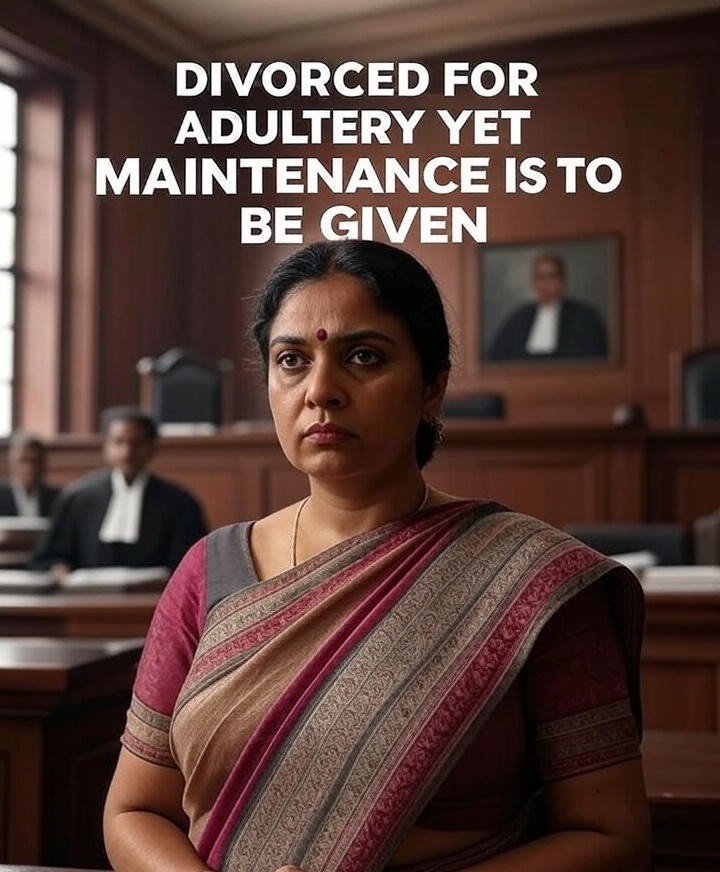INTRODUCTION
Recently, there was a case in Ahmedabad rural court wherein the couple was divorced due to accusations of adultery and cruelty. The husband had filed that the woman was also living in adultery and therefore, should not get maintenance. The court dismissed the plea and ordered maintenance by the husband who committed domestic violence, and was living with a second wife.
This article will not only study this particular case but also certain provisions of law which are revolving around maintenance, adultery and domestic violence.
FACTS OF THE CASE
Their marriage took place in 2006, and they shifted to Abu Dhabi, where the woman allegedly suffered from domestic violence. After having a son in 2012, the woman returned to her paternal house in India. She came back with the child in 2016 and has been living there.
CASE HISTORY
The individual currently resides in the United Arab Emirates and is an NRI (Non-Resident Indian). The court mandated that he pay his ex-wife ₹40,000 per month in maintenance, ₹20,000 for rent on his home, and ₹25 lakh in compensation under the Domestic Violence Act.
The family court had granted the husband a divorce on the grounds that his wife had committed adultery. According to him, the woman shouldn’t receive any maintenance as a result. However, this argument was rejected by the court.
The husband did not bring up this issue at the appropriate moment during the court proceedings, the judge noted. From then on, she resided there. In 2017, when the husband filed for divorce, the lady lodged a First Information Report (FIR) at the Sabarmati police station and filed a complaint under the Domestic Violence Act.
The couple was later granted a divorce by the court on January 20, 2023, on the grounds of cruelty and adultery. However, the family court had already mandated that the man give his wife and child ₹40,000 a month in support before the divorce was finalized. After carefully weighing the evidence, the court determined that a woman should not be refused basic support just because she has been accused of adultery, particularly if she is caring for a kid and has no source of income.
As it concluded, the court stated, The woman is not currently living with any men in an extramarital affair. He is unemployed while she has no source of income. This ruling is significant because it demonstrates that last-minute accusations will not be readily accepted by courts, particularly in cases when a woman has experienced domestic abuse.
DOMESTIC VIOLENCE ACT 2005
PURPOSE
The Act protects a woman’s right to live in her married residence. This Act is unique in that it contains legal protections that safeguard women and allow them to “live in a home free from violence.” Despite the criminal and civil provisions of this Act, a woman victim is entitled to urgent civil remedies within 60 days. Under this Act, resentful women may bring legal action against any adult male perpetrator who is living with them. In order to pursue remedies in their lawsuit, they may additionally include additional family members of the husband and male partner as respondents.
SALIENT FEATURES
Important aspects of the Act:
- guarantees the right to reside under section 17.
- identifies economic violence and provides economic relief.
- acknowledges emotional and verbal abuse.
- gives the child temporary custody.
- judgments within sixty days of the case’s filing.
- A single case with several judgments.
- Even if there are ongoing legal disputes between the parties, cases may still be filed under the PWDV Act.
- Both the respondent and the petitioner may choose to appeal.
REMEDIES
The Protection of Women from Domestic Violence Act of 2005 provides the following remedies.
Section 18: Order of Protection
Section 19: Residence Order for Living in the Marital Residence
Section 20: Monetary Orders, which covers her and her children’s support
Section 21: Temporary Child Custody
Section 22—An award of compensation for the harm she endured
ADULTERY
Since the Supreme Court overturned Section 497 of the Indian Penal Code (IPC) in 2018, adultery is no longer a crime in India. However, under a number of personal laws, such as the Indian Divorce Act, the Hindu Marriage Act, and the Special Marriage Act, adultery is still a valid reason for divorce. Adultery is not a crime, but it may play a role in civil cases such as divorce and maintenance disputes.
MAINTENANCE
The purpose of maintenance laws in India is to guarantee the financial assistance of those who are incapable of supporting themselves, such as parents, spouses, and children. The Criminal Procedure Code (CrPC), the Hindu Adoptions and Maintenance Act, and personal laws are the main laws that regulate these laws.
According to Section 125 of the Criminal Procedure Code (CrPC), a husband is required to provide for his wife, kids, and elderly parents regardless of their religious beliefs. If a wife cannot support herself, her husband has enough money, and she hasn’t refused to remain with him without a good reason, she is entitled to maintenance.
The Hindu Adoptions and Maintenance Act (HAMA) covers the maintenance of a widowed daughter-in-law, her children, her parents who are elderly or ill, and her spouse. Parents are required to provide for their illegitimate and legal offspring, and children are required to provide for their elderly or ailing parents.
Personal Laws: The Hindu Marriage Act, Muslim Personal Law, and Christian Divorce Act are only a few examples of the various religious communities’ personal laws in India that deal with maintenance.
ABOUT THE AUTHOR

SAHIL YADAV, a law student at NLIU Bhopal, is a dedicated and passionate legal writer, who is keen to explore International Law, Constitutional Law, Criminal Law, Forensic Psychology, and publish research papers and articles on contemporary legal nuances and issues. He is also interested in the intersection of disciplines like history, psychology, political science, philosophy, and sociology with law.

